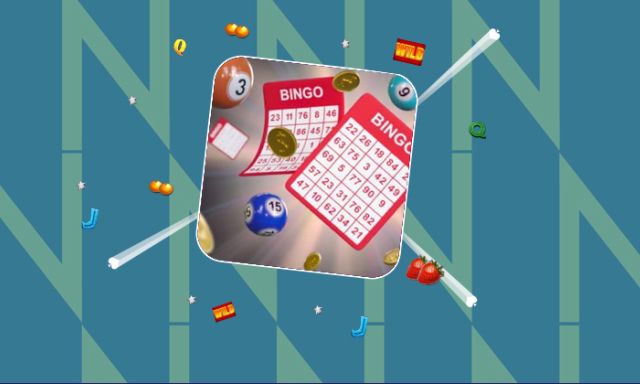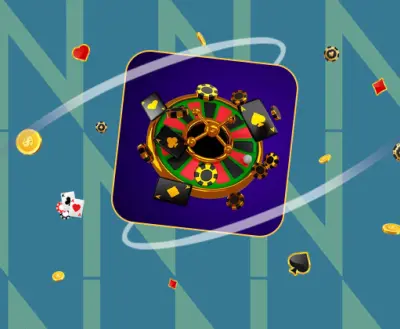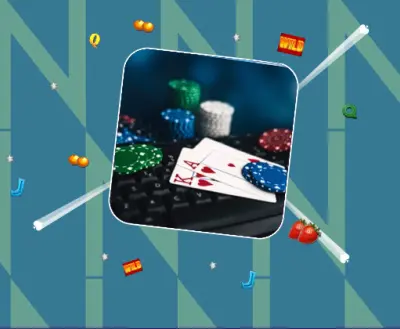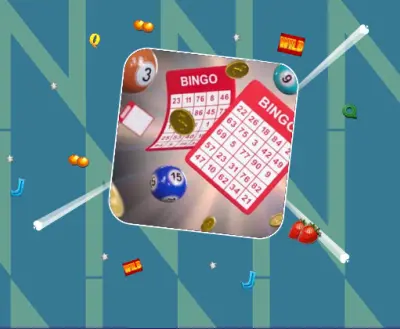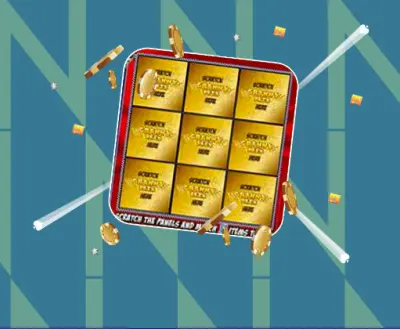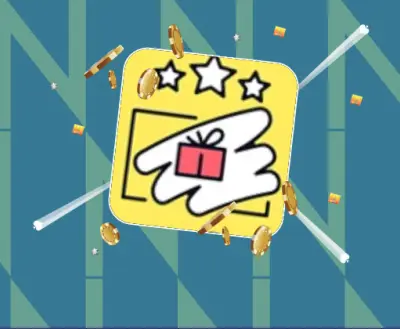Bingo Lingo: Complete Guide for Beginners
Welcome to the world of bingo, a game of chance, camaraderie, and most importantly, its unique language. You see, bingo isn't just about the thrill of filling your card before everyone else. It's also about immersing yourself in a vibrant community that communicates through a rich tapestry of phrases and expressions – yes, we're talking about bingo lingo.
Understanding this lingo is fundamental, especially if you're just starting your journey. It’s akin to learning a new dialect, a playful mix of rhymes, nicknames, and phrases that add a layer of fun and anticipation to the game. From number calls that echo with history and humour to unique sayings that brighten up the bingo halls, bingo lingo isn't just words; it's the soul of the game. So, as beginners, let's dive in together and decode the delightful language of bingo, making your initiation into this community not just easier, but also truly memorable at Gala Casino.
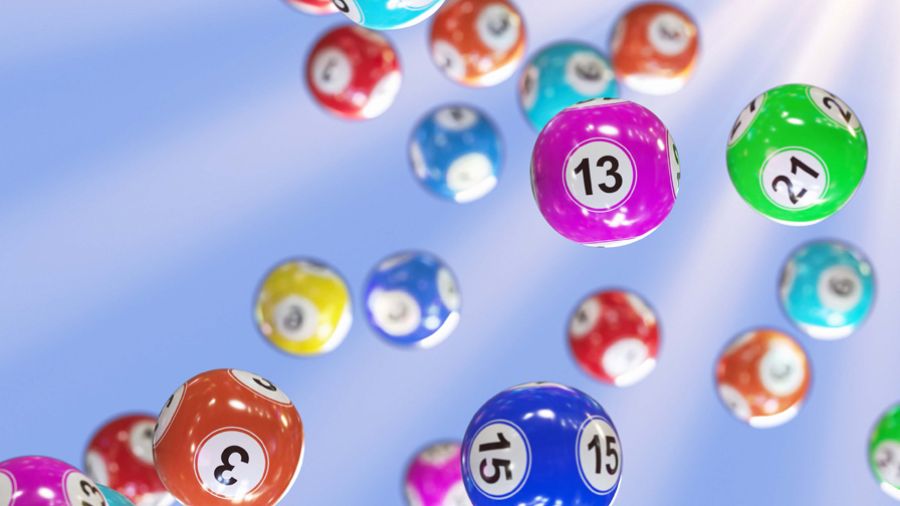
Basics of Bingo Lingo
When it comes to Bingo, the game's language itself is part of the fun and allure. Beyond the regular calls of 'Bingo!' or 'Full House', there's an entire lexicon to explore. Terms like "Four Corners", where you cover all the corner numbers on your card, or "Blackout", which means covering all 24 numbers plus the free space, are commonly used during games. Similarly, when you hear the term "Ready", a player is just one number short of claiming a Bingo. Mastering these common phrases is essential to fully enjoy and participate in the game.
Bingo Calls and Their Meanings
Understanding Bingo's number nicknames, sometimes referred to as 'bingo calls' or 'bingo lingo', can seem like learning a new language. But fear not, we're here to guide you. Let's take a fun and educational journey from 1 to 90!
- Kelly's Eye: Named after Ned Kelly, a famous Australian outlaw.
- One Little Duck: The number two resembles a single duck.
- Cup of Tea: Rhymes with three.
- Knock at the Door: Rhymes with four.
- Man Alive: Rhymes with five.
- Half a Dozen: A common phrase meaning six.
- Lucky Seven: Seven is often considered a lucky number.
- Garden Gate: Rhymes with eight.
- Doctor's Orders: Number nine was a laxative pill given out by army doctors in WWII.
- Boris’s Den: A nod to 10 Downing Street, the British Prime Minister's residence.
- Legs Eleven: The number 11 resembles a pair of legs.
- One Dozen: Represents twelve of something.
- Unlucky for Some: Thirteen is considered an unlucky number in many cultures.
- Valentine’s Day: Represents the date, 14th February.
- Young and Keen: Rhymes with fifteen.
- Sweet Sixteen: Traditional term for a girl's 16th birthday.
- Dancing Queen: Title of a popular ABBA song.
- Coming of Age: Traditional age of adulthood.
- Goodbye Teens: Nineteen is the last of the 'teen' numbers.
- One Score: A 'score' is an old word for twenty.
- Key of the Door: Traditional age of adulthood.
- Two Little Ducks: The number 22 resembles two ducks.
- Thee and Me: Rhymes with twenty-three.
- Two Dozen: Represents twenty-four of something.
- Duck and Dive: Rhymes with twenty-five.
- Pick and Mix: Rhymes with twenty-six.
- Gateway to Heaven: Rhymes with twenty-seven.
- Over Weight: Rhymes with twenty-eight.
- Rise and Shine: Rhymes with twenty-nine.
- Dirty Gertie: Rhymes with thirty.
- Get Up and Run: Rhymes with thirty-one.
- Buckle My Shoe: Rhymes with thirty-two.
- All the Threes: Visual representation of the number 33.
- Ask for More: Rhymes with thirty-four.
- Jump and Jive: A dance step from the 1930s, rhymes with thirty-five.
- Three Dozen: Represents thirty-six of something.
- More Than Eleven: Rhymes with thirty-seven.
- Christmas Cake: Cockney rhyming slang for thirty-eight.
- Steps: Referencing the '39 Steps' novel by John Buchan.
- Naughty Forty: Rhyming slang for forty.
- Time for Fun: Rhymes with forty-one.
- Winnie the Pooh: Rhymes with forty-two.
- Down on Your Knees: This was a command from the drill sergeants in WWII.
- All the Fours: Visual representation of the number 44.
- Halfway There: Midway point of the Bingo card.
- Up to Tricks: Rhymes with forty-six.
- Four and Seven: Plainly speaking, forty-seven.
- Four Dozen: Represents forty-eight of something.
- PC (Police Constable): Rhymes with forty-nine, also represents the UK police drama series.
- Half a Century: Represents fifty years.
- Tweak of the Thumb: Rhymes with fifty-one.
- Danny La Rue: Rhymes with fifty-two, referencing the performer.
- Stuck in the Tree: Rhymes with fifty-three.
- Clean the Floor: Rhymes with fifty-four.
- All the Fives: Visual representation of the number 55.
- Was She Worth It?: This refers to the traditional cost of a marriage license, 5 shillings and sixpence.
- Heinz Varieties: References '57 varieties' slogan of Heinz company.
- Make Them Wait: Rhymes with fifty-eight.
- Brighton Line: References the London to Brighton bus route which was numbered 59.
- Five Dozen: Represents sixty of something.
- Baker's Bun: Rhymes with sixty-one.
- Tickety-Boo: Rhymes with sixty-two, meaning everything's fine.
- Tickle Me: Rhymes with sixty-three.
- Red Raw: Rhymes with sixty-four.
- Old Age Pension: The traditional retirement age.
- Clickety Click: Rhymes and resembles number 66.
- Stairway to Heaven: Rhymes with sixty-seven.
- Pick a Mate: Rhymes with sixty-eight.
- Anyway Up or Meal for Two: The number 69 looks the same upside down.
- Three Score and Ten: Based on the way 70 is spoken in the Bible.
- Bang on the Drum: Rhymes with seventy-one.
- Six Dozen: Represents seventy-two of something.
- Queen B: Rhymes with seventy-three, and a reference to the Queen Bee.
- Candy Store: Rhymes with seventy-four.
- Strive and Strive: Rhymes with seventy-five.
- Trombones: The number 76 relates to the '76 trombones' song from The Music Man.
- All the Sevens: Visual representation of the number 77.
- Heaven’s Gate: Rhymes with seventy-eight.
- One More Time: Rhymes with seventy-nine.
- Eight and Blank: Simply eighty.
- Stop and Run: Rhymes with eighty-one.
- Straight On Through: Rhymes with eighty-two.
- Time for Tea: Rhymes with eighty-three.
- Seven Dozen: Represents eighty-four of something.
- Staying Alive: Rhymes with eighty-five.
- Between the Sticks: Rhymes with eighty-six, a reference to the position of a goalie in football.
- Fat Lady with a Crutch: The number 87 resembles a fat lady with a crutch.
- Two Fat Ladies: The number 88 visually resembles two fat ladies.
- Nearly There: 89 is one less than the Bingo total of 90.
- Top of the Shop: The highest number on the Bingo card.
Resources for Understanding and Learning Bingo Lingo
While this guide provides a solid foundation, learning bingo lingo is an ongoing process. From reading books like "The Complete Guide to Bingo" to engaging in online forums and even using dedicated mobile apps, you'll find a host of resources to support your journey. For an interactive and practical experience, try playing a game of Bingo on Gala Casino. It's a fantastic way to familiarise yourself with the calls, test your knowledge, and of course, have a whole lot of fun!
Origins and Evolution of Bingo Lingo
It's a fascinating journey tracing the roots of Bingo lingo. Originating in the UK, this vibrant, unique, and sometimes cheeky language can be traced back to the 20th century. Back in the day, the game of Bingo was a staple at British seaside resorts and was often played in large tents filled with holiday-goers. It was in this lively and informal atmosphere that Bingo lingo was born.
Bingo lingo stems from rhyming slang, a tradition deeply embedded in English linguistic culture. This form of language play involves substituting a common word with a phrase that rhymes with it. Therefore, 'Cup of Tea' for 'Three' or 'Garden Gate' for 'Eight'. Over time, this method of calling out numbers not only added humour and excitement to the game but also enabled the caller to be heard clearly over the ambient noise.
How Bingo Lingo Has Evolved Over Time
As with any living language, Bingo lingo has evolved and adapted to societal and cultural changes over time. This ongoing evolution ensures the game remains relevant, engaging, and inclusive. Modern phrases, popular culture references, and even political humour are now often included in the number calls. Take 'Boris's Den' for 10, a playful nod to 10 Downing Street, the British Prime Minister's residence. Or 'Dancing Queen' for 17, referencing ABBA's famous song.
Notably, the digital age has significantly influenced the way we play Bingo, with online platforms like ours at Gala Casino facilitating a broader and more diverse player base. This growth and diversity have driven further evolution of the lingo, including the introduction of acronyms like 'GL' (Good Luck) and 'WTG' (Way to Go), commonly used in online chat rooms.
Popular Bingo Calls
1. Two Fat Ladies (88)
Arguably one of the most recognized Bingo calls, 'Two Fat Ladies' refers to the number 88. The reason is simple, when written down, the number '88' resembles two plump women standing next to each other.
2. Clickety Click (66)
Here's an example of how a number's appearance inspires a call. The number '66' gets its nickname 'Clickety Click' from the similarity in appearance to two downward-facing mouse cursors, reminiscent of the clicking action of a computer mouse.
3. Dancing Queen (17)
Sometimes, bingo calls borrow from popular culture. In this case, the ABBA song 'Dancing Queen,' which famously features the line 'You are the Dancing Queen, young and sweet, only seventeen,' provides the call for the number 17.
4. Two Little Ducks (22)
The 'Two Little Ducks' call for number 22 is a visual one. Written down, the number '22' appears similar to two ducks swimming side by side. Often, when this number is called, players respond by quacking for a bit of added fun!
5. Legs Eleven (11)
For the number 11, we turn to the world of bingo lingo for a nickname inspired by shape. The number 11 resembles a pair of legs, which is likely why 'Legs Eleven' has become the popular call.
6. Unlucky for Some (13)
Sometimes, a bingo call will be based on superstitions. Number 13 is widely considered unlucky in many cultures, giving rise to the call 'Unlucky for Some.'
7. Doctor’s Orders (9)
Here's one from the history books! The term 'Doctor's Orders' for number 9 comes from the Second World War. The Number 9 pill was a laxative given to soldiers who were off sick. Soldiers would often joke that they had been given the "doctor's orders."
8. Garden Gate (8)
Some bingo calls, like 'Garden Gate' for number 8, are purely based on rhyme. There's no complicated history or hidden meaning here - eight simply rhymes with 'gate.'
9. Rise and Shine (29)
'Rise and Shine' for 29 is a great example of bingo rhyming slang. Just like 'Garden Gate' for 8, 'Rise and Shine' simply rhymes with 29.
10. Knock at the Door (4)
Last but not least, 'Knock at the Door' for number 4. Again, it's a simple rhyme, but one that's well-known in the world of bingo.
Unique Bingo Phrases by Country
Regional Variations in Bingo Language
The rich tapestry of bingo lingo is deeply entwined with its regional roots. Just as languages have their dialects and accents, bingo lingo varies distinctly from one country to another, each reflecting its unique cultural and historical aspects.
Bingo Lingo in the UK
In the United Kingdom, the birthplace of bingo, calls are often steeped in historical context, Cockney rhyming slang, or local pop culture. For example, the number 32 is called 'Buckle My Shoe,' a nod to the popular nursery rhyme. Likewise, 'Bobby Moore,' used for the score of 20, pays tribute to the iconic English footballer who famously wore the number 20 jersey. British bingo lingo is a treasure trove of cultural references, adding an extra layer of enjoyment for history buffs and pop culture enthusiasts.
Bingo Lingo in the US
Across the pond, in the United States, bingo calls often reflect a more direct approach. The American version of bingo includes a letter prefix associated with the bingo card's column. For instance, 'B11' and 'G58' are common calls you might hear in an American bingo hall. This streamlined approach to calls, while less whimsical, adds to the efficiency of the game in a larger setting, keeping the play swift and the excitement high.
Unique Bingo Phrases Found in Different Countries
Dive into the world of bingo, and you'll find that each region has crafted its unique phrases, infusing local flavour into the game.
Australia's Quirky Bingo Calls
The Australian version of bingo maintains a distinct charm with its phrases. For instance, 'Australia's cricket score,' used for the number 87, is a playful nod to the superstitions surrounding this number in the country's beloved cricket. It's believed to be unlucky for a batsman to score 87 runs, as it's 13 runs short of a century (100 runs) - a significant milestone in the sport.
Bingo Calls in the US
In the United States, local industry and pop culture often seep into the bingo calls. The number 55, for instance, might be called 'Just like Heinz,' a fun reference to the Heinz company's famous slogan boasting '57 Varieties' - although they produce many more. While it's not a direct match to the number, it's a bingo call that reflects the nation's familiarity and relationship with this iconic brand.
Fun with Bingo Lingo
We recommend incorporating bingo lingo into fun activities and games to help beginners practise. For example, you could host a 'bingo lingo quiz' where participants must match numbers with their corresponding calls.
Or, try a 'bingo call charades' where players act out the phrases behind the bingo calls, and others have to guess the number. These games provide a fun and engaging way to learn the lingo.
You can also incorporate bingo lingo into your daily life for a bit of fun. Why not replace the phrase 'goodbye' with 'top of the shop (90)' or use 'two little ducks (22)' instead of 'easy peasy'?
Becoming a Bingo Pro
How to Talk Like a Bingo Pro
Embarking on the journey to becoming a bingo pro requires more than just an understanding of the game rules. The mastery of bingo lingo is an essential part of this exciting voyage. So, how can you talk like a seasoned player? Let's dive into some effective strategies.
Familiarise Yourself with the Bingo Lingo
Understanding bingo language is a crucial first step in sounding like a pro. Like learning a new language, the key is immersion. By participating in games regularly, listening attentively to the calls, and learning the bingo terms glossary, you'll gradually build your vocabulary and gain confidence in using the lingo. To reinforce this learning, you can explore resources such as our comprehensive guide on bingo calls and phrases.
Practice Makes Perfect
The old saying 'practice makes perfect' holds true when it comes to bingo lingo. Try to incorporate bingo terms into your everyday conversations as much as possible. This constant practice will not only improve your fluency in the bingo language but also make these terms second nature. Think of it as fun homework; can you fit 'Two Little Ducks' (22) into a chat about dinner, or 'Buckle My Shoe' (32) into a discussion about fashion?
Engage with the Bingo Community
The beauty of the bingo world is its warm, welcoming community. Engage with your fellow players, ask questions, share your experiences, and learn from their wealth of knowledge. Whether it's a traditional bingo hall or an online forum, these communities can provide invaluable insights, tips, and tricks that will enhance your understanding of the lingo and, in turn, your gameplay.
Enhancing Your Gameplay with Bingo Jargon
To elevate your bingo experience, aim to incorporate bingo jargon into your gameplay as much as possible. Instead of merely stating the number, use the corresponding call. For example, instead of calling out '88,' say 'Two Fat Ladies.' This practice not only makes the game more engaging and fun but also aids in memorising the terms.
Conclusion
As we've explored throughout this comprehensive guide, understanding bingo lingo is more than just a fun add-on to the game - it's an integral part of the bingo experience. From the quirky number calls to the unique regional phrases, bingo language is steeped in tradition, humour, and camaraderie.
For beginners, diving into the language of bingo can seem daunting at first, but the richness it adds to the gameplay is well worth the effort.
We encourage you, our budding bingo enthusiasts, to fully immerse yourselves in this colourful language. Practise it, play with it, and share it. There's no better way to learn than by doing, and each bingo game presents an opportunity to improve your fluency. So grab that dabber, join a game, and let the language of bingo roll off your tongue.
As your understanding of bingo lingo grows, so will your appreciation for the game. Every call will take on a new dimension, enhancing your connection to the game's rich history and its vibrant global community. But beyond that, mastery of bingo lingo simply makes the game more fun.
And isn't that what bingo is all about? So go ahead, dive into the lively world of bingo lingo, and add a new level of enjoyment to your gameplay. Bingo isn't just a game - it's a language all its own.
Frequently Asked Questions
What is Bingo Lingo?
Bingo Lingo refers to the specific language, phrases, and number nicknames that are used in the game of bingo. It involves a rich set of jargon, from "Two Little Ducks" (22) to "Top of the Shop" (90), that not only adds a layer of fun to the game but also creates a unique community spirit among players.
What are the essential terms in Bingo?
Some essential bingo terms include "Full House" (when a player completes an entire bingo card), "Line" (when a player completes a row of numbers), and "Pattern" (a specific arrangement of numbers a player needs to complete). The numbers one to ninety also have specific nicknames, known as bingo calls.
How can I understand and use Bingo language effectively?
Understanding and using bingo language effectively requires a combination of learning and practice. Start with familiarising yourself with the common terms and number nicknames. Then, apply what you've learned by joining and participating in bingo games. Engaging with the community can also provide valuable learning experiences.
Are there regional variations in Bingo terminology?
Yes, there are regional variations in bingo terminology. Bingo lingo in the UK, for example, often uses rhyming slang and cultural references, while American bingo lingo tends to be more straightforward. In Australia, there's even a unique call that references cricket!
What are some popular Bingo phrases and expressions?
Popular bingo phrases and expressions include number nicknames like "Two Little Ducks" for 22, "Unlucky for Some" for 13, and "Two Fat Ladies" for 88. Phrases such as "Eyes Down" (to start a game) and "Clickety Click" (for 66) are also popular.
Can knowing Bingo language improve my gameplay?
Absolutely! Knowing bingo language not only enhances your understanding of the game but also allows for faster and more efficient gameplay. It also allows you to engage more deeply with the bingo community and enjoy the full experience of the game.
Where can I find resources to learn more about Bingo language?
Many online resources, including our Gala Casino blog, provide comprehensive guides to bingo language. Bingo community forums, social media groups, and even bingo apps can also be useful resources for learning more about bingo language.
How does Bingo language contribute to the overall Bingo experience?
Bingo language contributes to the overall experience by adding a layer of fun, history, and community spirit to the game. It enhances the social aspect of bingo and makes the game more vibrant and engaging.
Are there any unique terms specific to online Bingo?
Yes, online bingo has developed its own lingo over time. Terms like "WTG" (Way to Go) to congratulate winners, "GL" (Good Luck), and "BRB" (Be Right Back) are commonly used in online bingo chat rooms.
What are the origins of Bingo language?
Bingo language, particularly in the UK, has its roots in the mid-20th century when the game gained popularity after the Second World War. Many of the terms have origins in Cockney rhyming slang, historical events, and popular culture. The exact origins of some terms, however, remain a mystery and are part of the fun folklore of the game.

